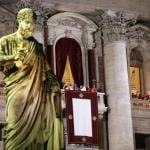
One of the more interesting features of academic theology in the medieval era was the Quodlibetal Question. Masters in theology participated in public discussions (or disputes), often during Advent and Lent, in which they would go before an audience and would be expected to answer any question that members of the audience would give them. They were expected to answer them with typical scholarly insight, logically exploring the different possible answers until the theologian gave their own, explaining why they did not think other answers were correct. Some questions which were asked dealt with contemporary theological disputes, but the theologian was expected to deal with any question from the audience, ranging from biological questions to issues concerning what was the best way to cook food. This was one of the ways theologians tried to show theology to be the queen of the sciences by showing the way theologians should be able to say something relevant on any particular subject at hand. For this to be possible, theologians were expected to have studied in a broad range of subjects before they engaged theology, learning in the process how to think and process information correctly.
Quodlibetal Question offered theologians a chance to engage questions which required speculative answers. In this fashion, they offered a chance for theologians to go beyond the basics of theology, beyond the basics of the theological disputes of the day, and to showcase their own intellectual capabilities as they were likely to address questions no one had asked before. They would not have any immediate precedent on which to stand their ground, though the way they engaged the question would be to find some way to tie it to something which they did know and use that as a foundation for their answer. By giving speculative opinions, though they were expected to give good answers, it also meant their answers were not always going to be authoritative, giving room for others to reflect upon the questions and give different, even better, answers later.
While contemporary theologians might not be as interested in all the means by which scholastic theologians answered quodlibetal questions, and they will not be as broadly educated as the schoolmen were because it would be nearly impossible for someone to be so broadly studied, it still is worthwhile for theologians to ponder questions in the spirit of the quodlibetal questions. It would make their work more relevant to those who otherwise have little to no interest in typical theological questions. Moreover, it would improve their own theological skills as they will be expected to go beyond their normal sphere of expertise, learn from others, and then take what they have learned and ponder its meaning to the theological enterprise. It will also mean theologians will be better equipped to speculative and develop their theological understanding through such speculation, so long as they accept the limitations of their knowledge and the conclusions which they can reach based upon their limited knowledge. Rather than trying to offer authoritative solutions to the kinds of questions modern society (and its sciences) can raise, theologians should see themselves as offering ways in which to engage those questions, showing possible solutions to the questions can arise, leaving the answer open to better solutions as more knowledge and understanding of the problems are attained. That is, theologians should be able to engage contemporary concerns using the best data they have while acknowledging that much of what they know is limited in scope and value, and that at best, only a preliminary opinion can be offered.
Theologians need to wrestle with contemporary issues. Obviously, they need to do so with the wisdom of the whole theological tradition. Nonetheless, it must be understood, often the questions which are asked today are, in some fashion or another, new questions, and merely repeating answers given in the past will not satisfy. Sometimes, perhaps often, as the question will be a new, modified version of an old question, the solution will likewise be a modified version of an old answer. The modifications, however, should be acknowledged in both circumstances. Why are they there? What caused the change in the question? For some question, the answer should be obvious: ancient scientific principles which were once accepted and considered true have been invalidated through contemporary scientific exploration, and so questions and answers which relied upon such ancient scientific principles will be modified in accordance to the way science has changed. Thus, for example, while it was once possible to believe the Earth was only a few thousand years old, and theologians reflected on the nature of history based upon that erroneous belief, now that we know the Earth is billions of years old, theological understanding of history needs to change even as it changed in the discipline of history itself.
It is in this light that I will be writing a series of speculative texts which will follow the spirit of the quodlibetal question. When I see or hear a particularly interesting question, I will write it down, and see if I can provide some sort of speculative solution to it. Every post which is to be in this series will begin with the same title, “Speculations,” and then have a number listed next to it to indicate which number it is in the series of speculations. After the number, I will give an indication as to what the discussion will be about. For example, the first in the series will be “Speculations: 1 – Aliens.”
My approach will be far more free-flowing than the schoolmen normally engaged when answering quodlibetal questions, because the ancient approach does not engage contemporary readers the way it did in the past. Also, because to be as thorough as the schoolmen were would create posts which are probably too long for the average reader. In this manner, I hope to write in a more popular fashion than I normally do, without needing to give citations for every idea I engage. I will explore the question at hand, explaining what I believe is relevant from it, and the various qualifications which I believe are necessary in order to answer it, and then go about giving possible solutions, sometimes one, sometimes more per question. If I know of a theological tradition or idea which ties into the question, I might make some indication of it, but if I do, it will be in passing, and so the reader should not expect a scholarly study with exact citations. One thing I would not want to happen is for people to take the answers as being more definitive than they are, and slowly use them in a reified manner in a way which strangles the theological enterprise as a whole (which, sadly, is what has happened with the way many people have taken the writings and opinions of great theologians from the past like St. Thomas Aquinas).
Theology is not meant to lead believers to dead ends. It should seek to get us closer in touch with the great mystery of God, a mystery which has no end. The quodlibetal question was one way in which theologians were forced to get out of their own particular dead-ends in the past. It is in this spirit, then, I begin this series. I do not know how long it will last. I do not know how frequent the posts will be in the series. I want to leave it all open-ended. Thus, I will write up a response when I see a question which I will like to address which I feel would be suitable for this series.
Stay in touch! Like A Little Bit of Nothing on Facebook.
If you liked what you read, please consider sharing it with your friends and family!













